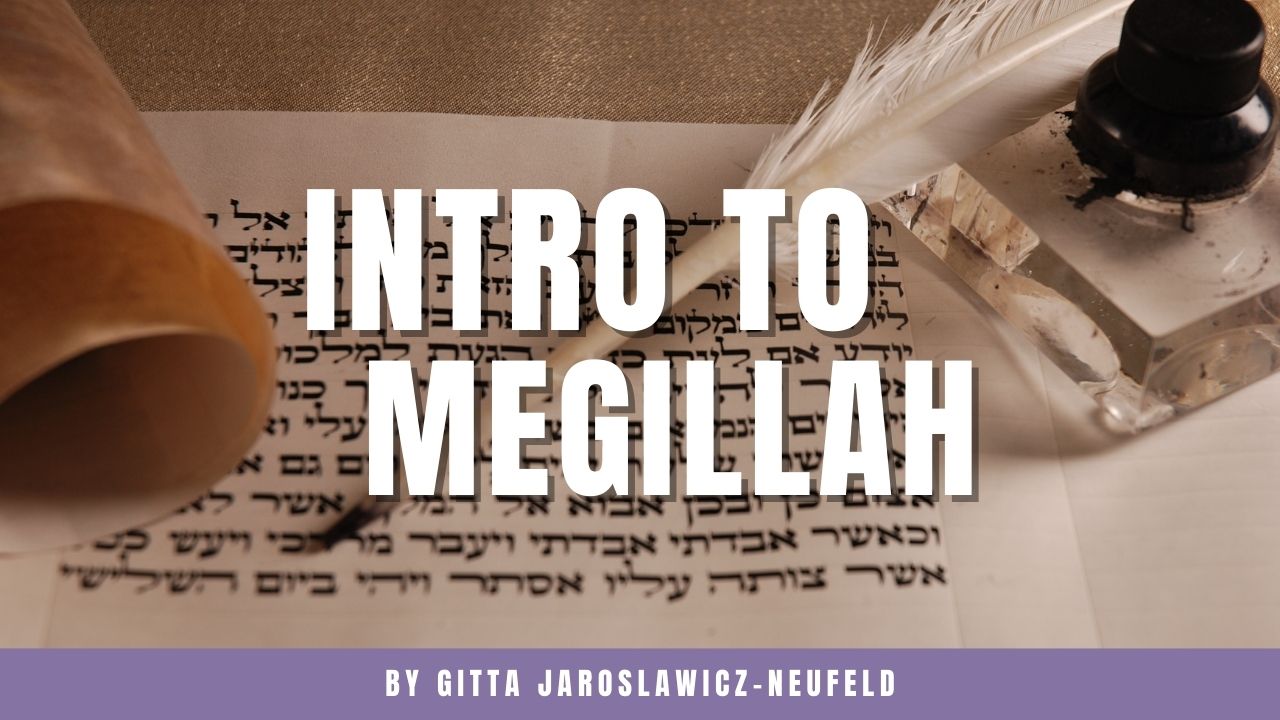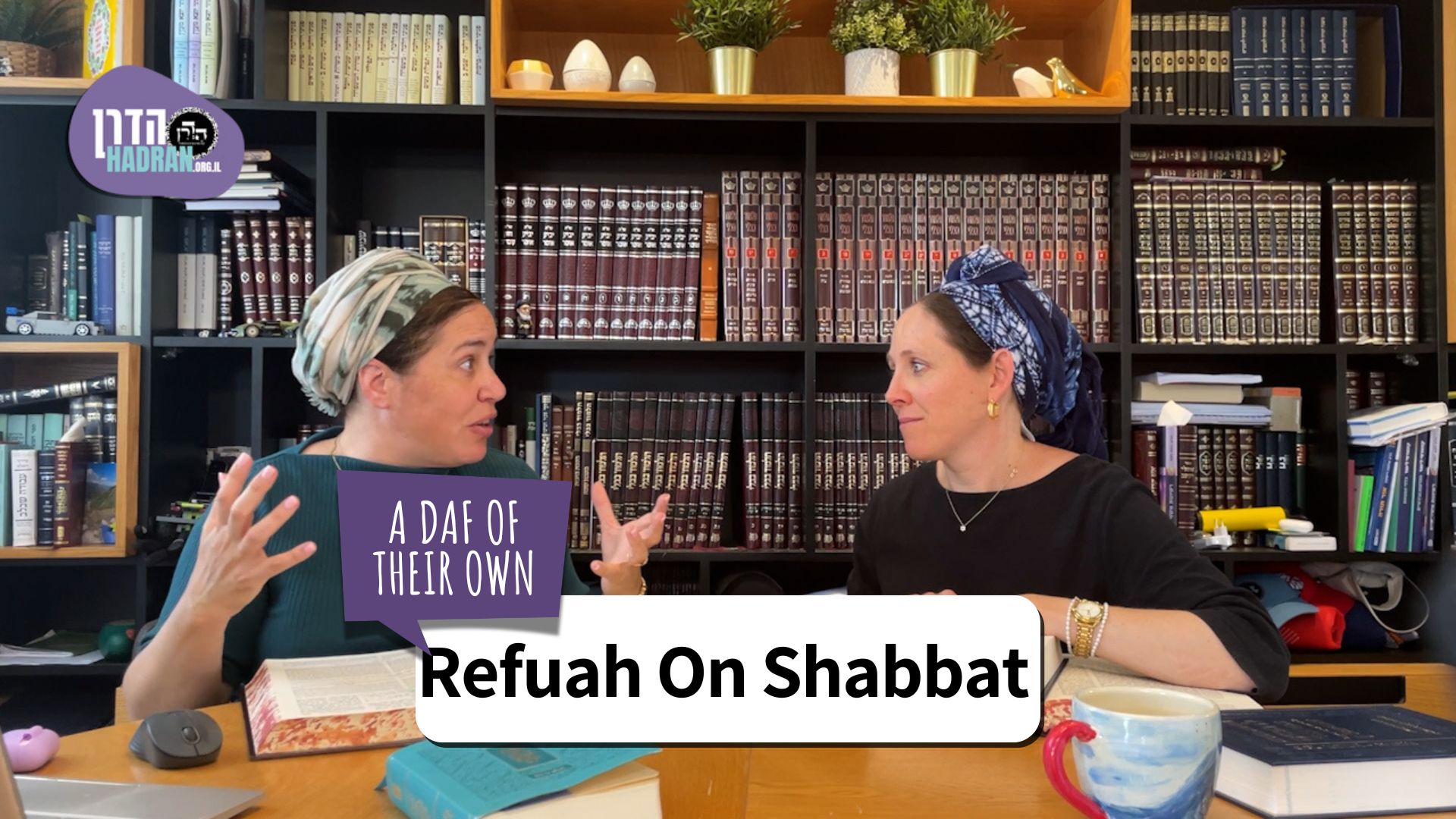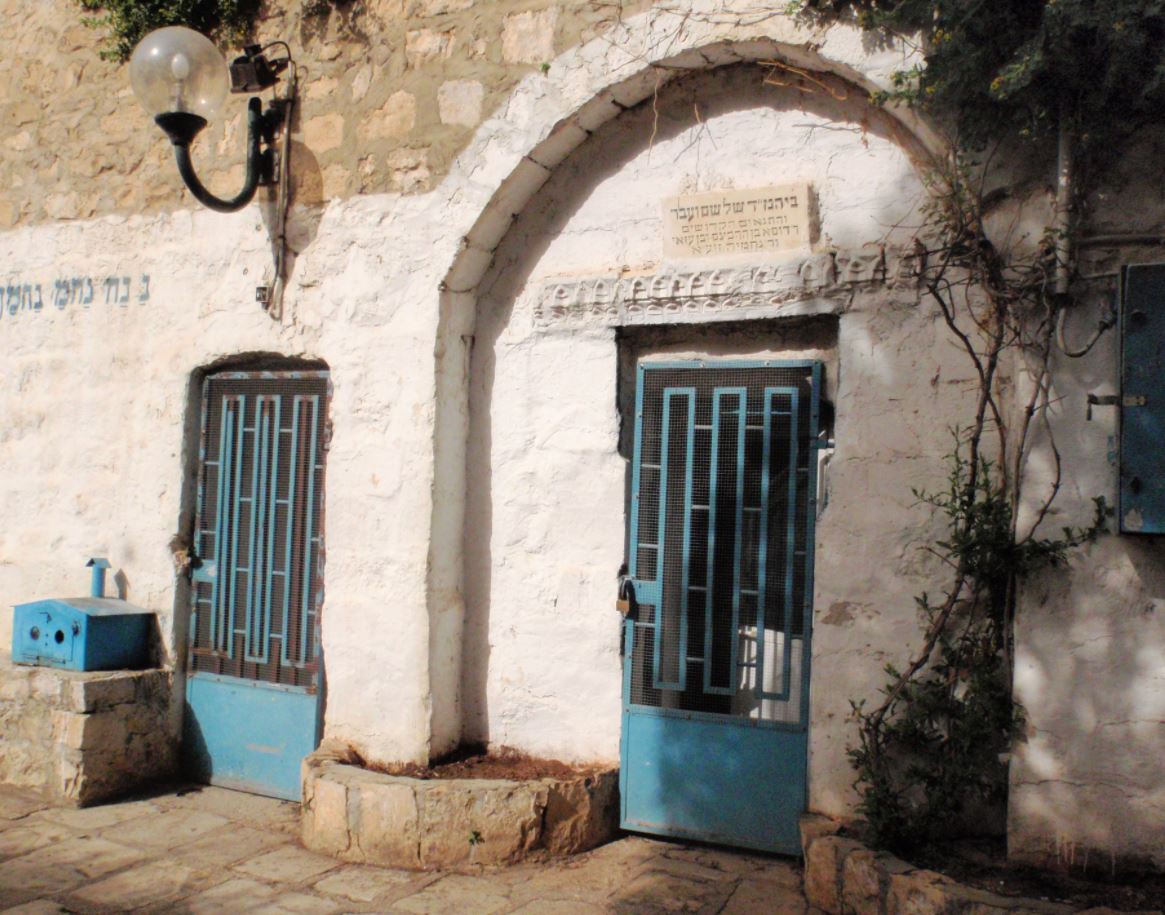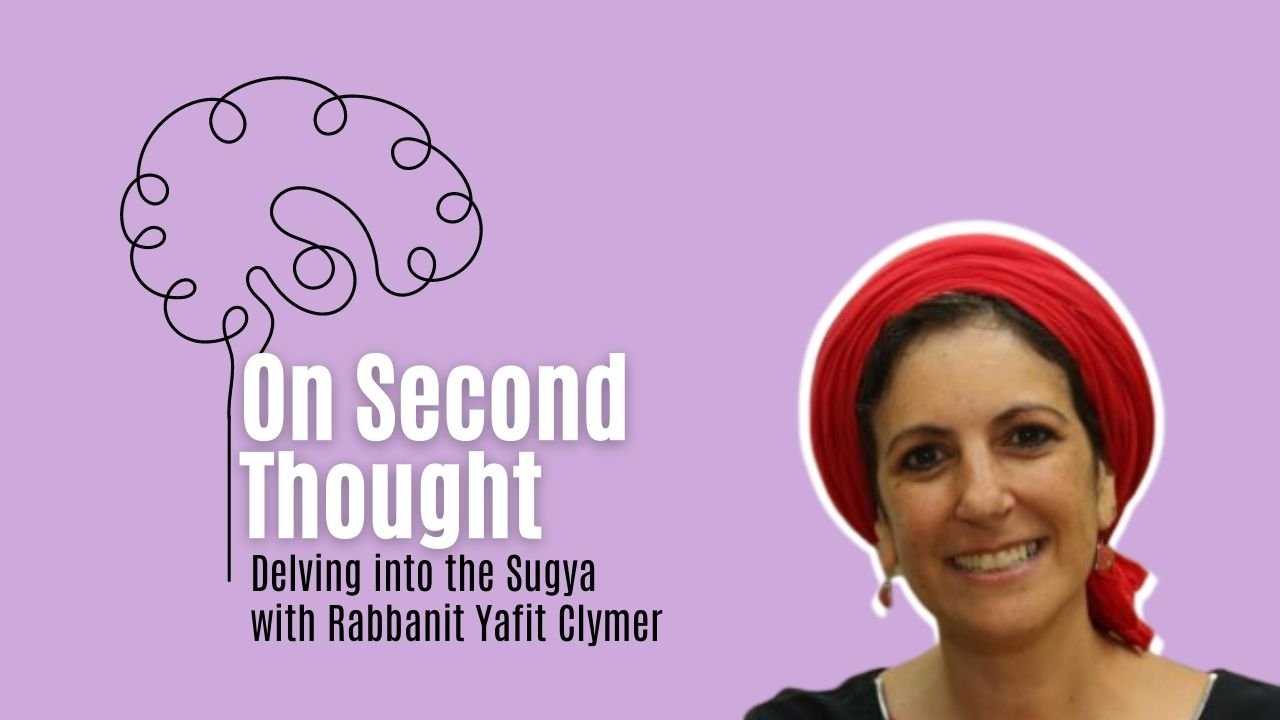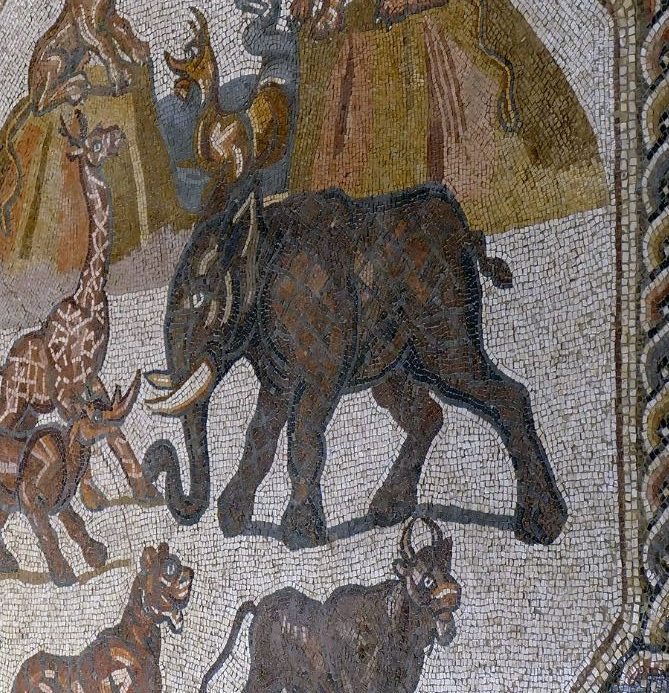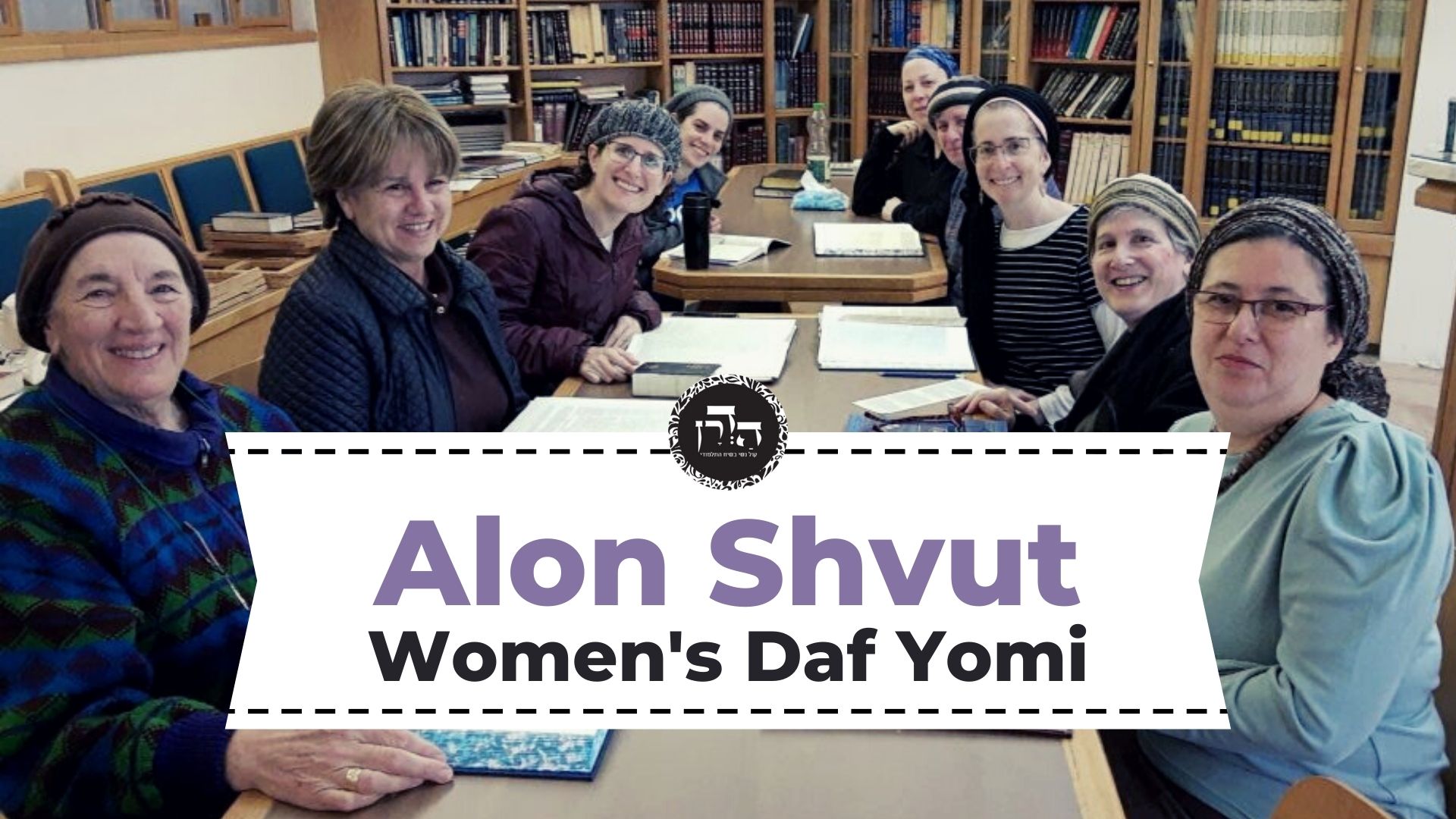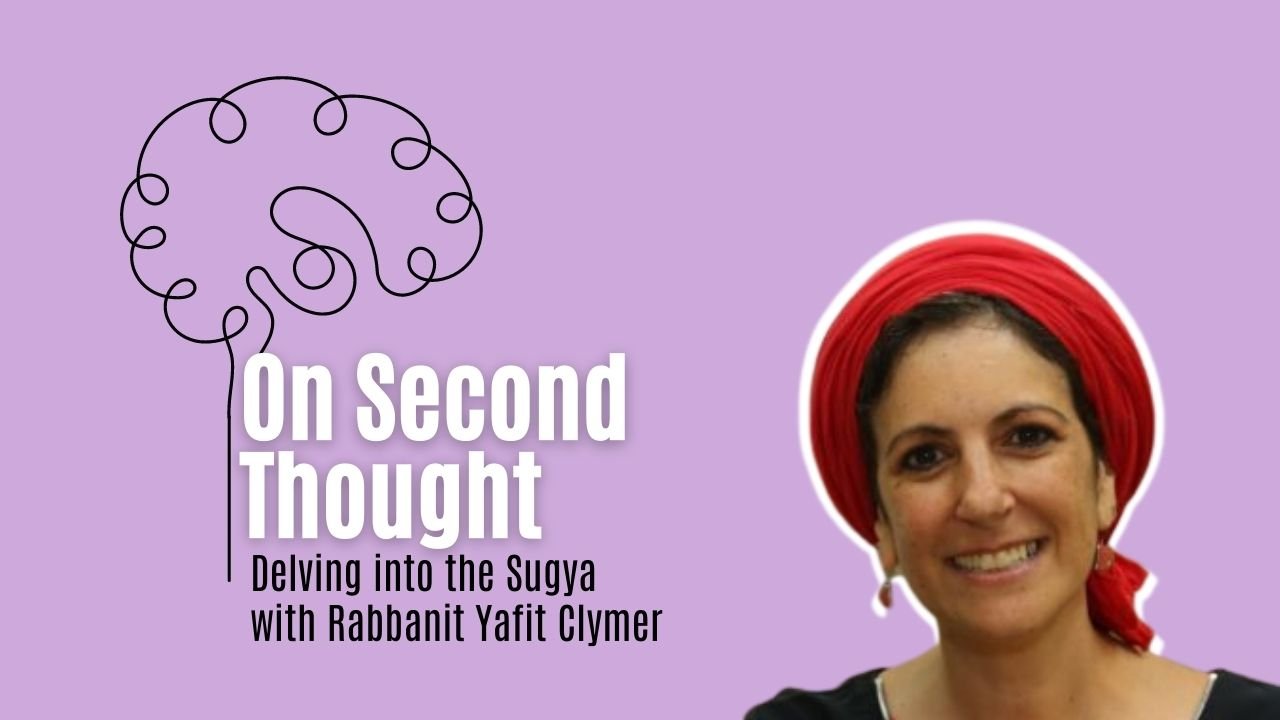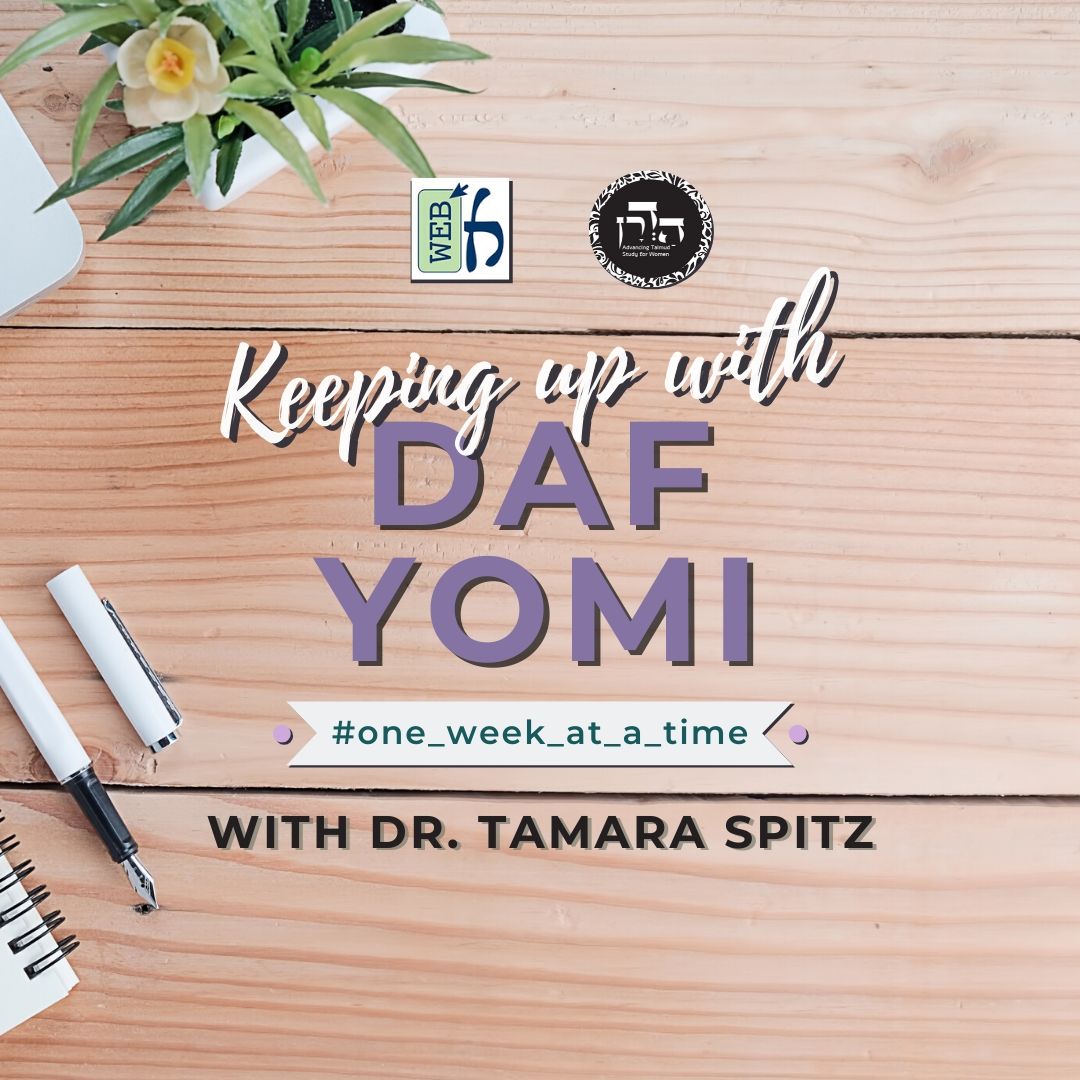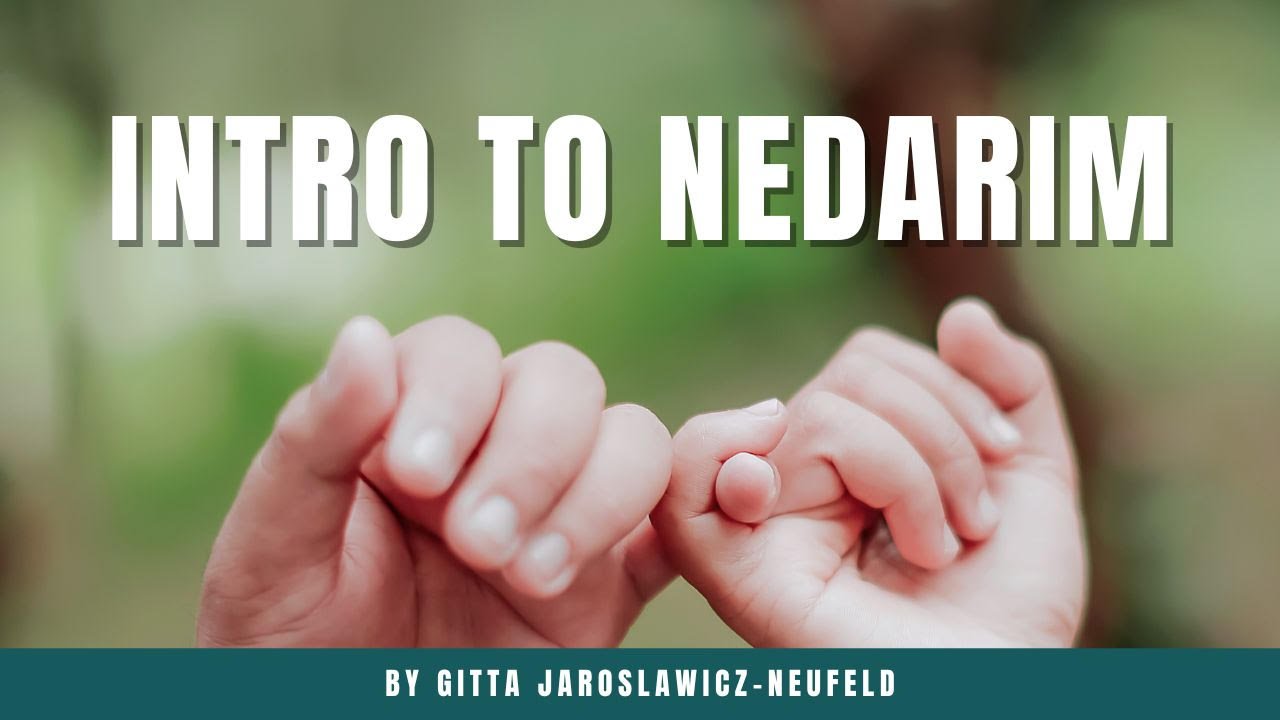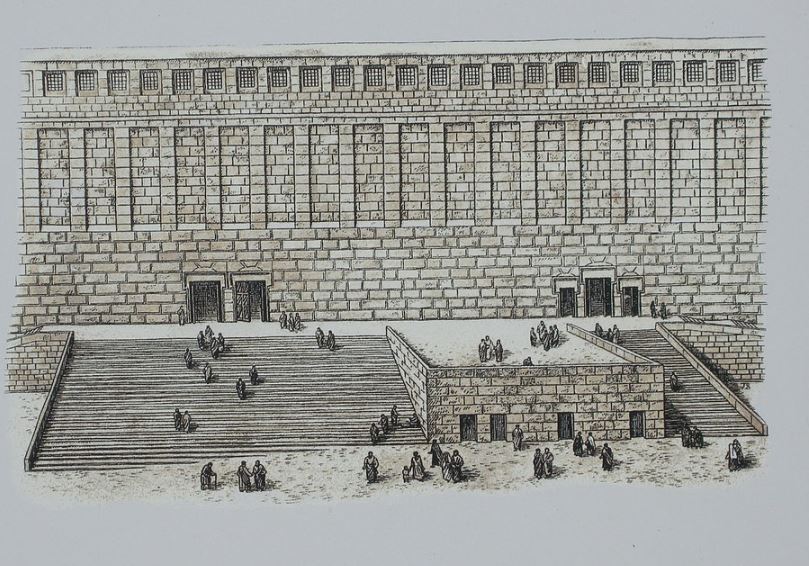If a messenger only does part of what the owner says, who is responsible for meilah? If the owner realizes the money was sanctified before the messenger used the money, who is responsible? If the messenger spent less money on the item than asked and purchased something else with the rest of the money, it is considered that the messenger partly fulfilled what the owner requested? If santified money mixed with other money, at what point is one obligated for misuse?
This week’s learning is sponsored for the merit and safety of Haymanut (Emuna) Kasau, who was 9 years old when she disappeared from her home in Tzfat two years ago, on the 16th of Adar, 5784 (February 25, 2024), and whose whereabouts remain unknown.
This week’s learning is dedicated of the safety of our nation, the soldiers and citizens of Israel, and for the liberation of the Iranian people. May we soon see the realization of “ליהודים היתה אורה ושמחה וששון ויקר”.
This week’s learning is sponsored for the merit and safety of Haymanut (Emuna) Kasau, who was 9 years old when she disappeared from her home in Tzfat two years ago, on the 16th of Adar, 5784 (February 25, 2024), and whose whereabouts remain unknown.
Want to dedicate learning? Get started here:


Today’s daily daf tools:
This week’s learning is sponsored for the merit and safety of Haymanut (Emuna) Kasau, who was 9 years old when she disappeared from her home in Tzfat two years ago, on the 16th of Adar, 5784 (February 25, 2024), and whose whereabouts remain unknown.
This week’s learning is dedicated of the safety of our nation, the soldiers and citizens of Israel, and for the liberation of the Iranian people. May we soon see the realization of “ליהודים היתה אורה ושמחה וששון ויקר”.
This week’s learning is sponsored for the merit and safety of Haymanut (Emuna) Kasau, who was 9 years old when she disappeared from her home in Tzfat two years ago, on the 16th of Adar, 5784 (February 25, 2024), and whose whereabouts remain unknown.
Today’s daily daf tools:
Delve Deeper
Broaden your understanding of the topics on this daf with classes and podcasts from top women Talmud scholars.
New to Talmud?
Check out our resources designed to help you navigate a page of Talmud – and study at the pace, level and style that fits you.
The Hadran Women’s Tapestry
Meet the diverse women learning Gemara at Hadran and hear their stories.
Meilah 21
מַהוּ דְּתֵימָא: עָקַר שָׁלִיחַ שְׁלִיחוּתֵיהּ דְּבַעַל הַבַּיִת, וְלָא לִמְעוֹל – קָא מַשְׁמַע לַן.
Rav Sheshet adds that it is necessary for the mishna to teach this halakha, lest you say that the agent has uprooted the agency of the homeowner by adding to his instructions, and therefore the homeowner is not liable for the prohibition of misuse even for the first piece of meat. Consequently, the mishna teaches us that the homeowner is also liable.
מַתְנִי׳ אָמַר לוֹ: ״הָבֵא לִי מִן הַחַלּוֹן אוֹ מִן הַדְּלוֹסְקָמָא״, וְהֵבִיא לוֹ. אַף עַל פִּי שֶׁאָמַר בַּעַל הַבַּיִת: ״לֹא הָיָה בְּלִבִּי אֶלָּא מִזֶּה״, וְהֵבִיא מִזֶּה – בַּעַל הַבַּיִת מָעַל. אֲבָל אִם אָמַר לוֹ: ״הָבֵא לִי מִן הַחַלּוֹן״, וְהֵבִיא לוֹ מִן הַדְּלוֹסְקָמָא, אוֹ ״מִן הַדְּלוֹסְקָמָא״, וְהֵבִיא לוֹ מִן הַחַלּוֹן – הַשָּׁלִיחַ מָעַל.
MISHNA: If the homeowner said to the agent: Bring me this item or this money from the window in the wall or from the chest [hadeluskema], and the agent obeyed and brought it to him from the place that he instructed him, even though the homeowner said: In my heart, my desire was only that he should bring me the item from that other place, and as he brought it from this place he did not fulfill my instructions, nevertheless the homeowner is liable for misuse if the item or money is consecrated, as the agent did in fact fulfill his instructions. But if the homeowner said to the agent: Bring me this item or this money from the window in the wall, and the agent brought it to him from the chest; or if the homeowner said to the agent: Bring me this item or this money from the chest, and the agent brought it to him from the window, the agent is liable for misuse.
שִׁלַּח בְּיַד חֵרֵשׁ שׁוֹטֶה וְקָטָן, אִם עָשׂוּ שְׁלִיחוּתוֹ – בַּעַל הַבַּיִת מָעַל, לֹא עָשׂוּ שְׁלִיחוּתוֹ – חֶנְווֹנִי מֵעַל.
In a case where the homeowner sent consecrated money in the hand of a deaf-mute, an imbecile, or a minor, who lack halakhic competence and cannot be commissioned as agents, in order to purchase an item from a storekeeper, if they performed his agency, the homeowner is liable for misuse, as his instructions were fulfilled. If they did not perform his agency but purchased a different item from the storekeeper, the storekeeper is liable for misuse.
שִׁלַּח בְּיַד פִּקֵּחַ, וְנִזְכַּר עַד שֶׁלֹּא הִגִּיעַ אֵצֶל חֶנְווֹנִי – חֶנְווֹנִי מָעַל לִכְשֶׁיּוֹצִיא.
If the homeowner sent the money in the hand of a halakhically competent person and the homeowner remembered that the money was consecrated before the agent reached the storekeeper, the storekeeper is liable for misuse when he spends the money for his personal use. The homeowner is exempt from liability for misuse, because once he remembers that the money is consecrated his misuse is no longer unwitting, and one is liable to bring an offering for misuse only for unwitting misuse of consecrated property.
כֵּיצַד יַעֲשֶׂה? נוֹטֵל פְּרוּטָה אוֹ כְלִי, וְאוֹמֵר: ״פְּרוּטָה שֶׁל הֶקְדֵּשׁ בְּכׇל מָקוֹם שֶׁהוּא מְחוּלָּל עַל זֶה״, שֶׁהַהֶקְדֵּשׁ נִפְדֶּה בְּכֶסֶף וּבְשָׁוֶה כֶּסֶף.
What shall the homeowner do in a case where he remembers that the money is consecrated, in order to prevent the storekeeper from liability for misuse? He takes one peruta or a vessel and says: The consecrated peruta, wherever it may be, is desacralized with this peruta or vessel. The peruta is thereby desacralized, as a consecrated item is desacralized with money and with an item that has the equivalent value of money. The result is that the storekeeper spends non-sacred money.
גְּמָ׳ מַאי קָא מַשְׁמַע לַן? דְּבָרִים שֶׁבַּלֵּב אֵינָם דְּבָרִים.
GEMARA: The mishna teaches that if the agent did as instructed by the homeowner, even if the homeowner claimed that he had another desire, it is the homeowner who is liable for misuse. The Gemara asks: What is the mishna teaching us? The Gemara answers: It is teaching that unspoken matters that remain in the heart are not significant matters. Therefore it is the homeowner who is liable, not the agent, despite the fact that the agent did not do what the homeowner desired.
שִׁילַּח בְּיַד חֵרֵשׁ שׁוֹטֶה וְקָטָן, אִם עָשׂוּ [וְכוּ׳]. וְהָא לָאו בְּנֵי שְׁלִיחוּתָא נִינְהוּ!
§ The mishna teaches: In a case where the homeowner sent consecrated money in the hand of a deaf-mute, an imbecile, or a minor, who lack halakhic competence and cannot be commissioned as agents, in order to purchase an item from a storekeeper, if they performed his agency, the homeowner is liable for misuse, as his instructions were fulfilled. The Gemara raises a difficulty: But they cannot be involved in agency. Since these groups of people lack halakhic competence, they cannot be agents; if so, how can the homeowner be liable for misuse?
אָמַר רַבִּי אֶלְעָזָר: עֲשָׂאוּם כְּמַעֲטָן שֶׁל זֵיתִים,
Rabbi Elazar says in explanation: The Sages rendered these individuals halakhically like a vat [kema’atan] of olives with regard to ritual impurity. Since it is beneficial for the homeowner when the moisture of the olives, i.e., liquid that seeps from the olives, leaks into a vat, as explained below, it is considered as though the homeowner had intent for the moisture to be there. Similarly, with regard to these categories of people, since it suits the homeowner when they do what he requested it is considered as though they acted with his intent.
דִּתְנַן: הַזֵּיתִים, מֵאֵימָתַי מְקַבְּלִין טוּמְאָה? מִשֶּׁיַּזִּיעוּ זֵיעַת הַמַּעֲטָן, וְלֹא זֵיעַת הַקּוּפָּה.
As we learned in a mishna (Teharot 9:1): When do the olives become susceptible to ritual impurity? From when they exude moisture. This is referring specifically to the moisture that emerges into the vat, but not the moisture that emerges into the basket. The moisture that comes into the vat softens the olives and is beneficial to the olive oil production, as it renders them easier to press. For this reason it is considered as though the homeowner has intent for the moisture to be there, and that moisture therefore renders the olives it touches susceptible to ritual impurity. By contrast, moisture in the basket serves no purpose, as it trickles out through holes in the basket. Consequently, it is not there with the intent of the homeowner and does not render the olives susceptible to ritual impurity.
רַבִּי יוֹחָנָן אָמַר: כְּאוֹתָהּ שֶׁשָּׁנִינוּ, נְתָנוֹ עַל גַּבֵּי הַקּוֹף וְהוֹלִיכוֹ, אוֹ עַל גַּבֵּי הַפִּיל וְהוֹלִיכוֹ, וְאָמַר לְאַחֵר לְקַבְּלוֹ מִמֶּנּוּ – הֲרֵי זֶה עֵירוּב. אַלְמָא קָא עָבְדָא שְׁלִיחוּתֵיהּ. הָכִי נָמֵי, אִיתְעֲבִיד שְׁלִיחוּתֵיהּ.
Rabbi Yoḥanan says: This case of a deaf-mute, imbecile or minor, is like that which we learned in a baraita with regard to placing food for a joining of Shabbat boundaries, i.e., an eiruv: If one placed the food of the eiruv on a monkey, and the monkey brought it to the place where he wanted the eiruv deposited, or if he placed it on a trained elephant, and the elephant brought it to the proper location, and he told another person to receive it from the animal, it is a valid eiruv. Evidently, the agency is performed by the monkey or elephant, despite the fact that they are unfit to serve as agents. So too, in the case of the deaf-mute, imbecile, or minor, the agency is performed despite the fact that they cannot be involved in agency.
שִׁלַּח בְּיַד פִּקֵּחַ וְכוּ׳. וְאַף עַל גַּב דְּלָא אִידְּכַר שָׁלִיחַ. וּרְמִינְהִי: נִזְכַּר בַּעַל הַבַּיִת וְלֹא נִזְכַּר שָׁלִיחַ – הַשָּׁלִיחַ מָעַל, נִזְכְּרוּ שְׁנֵיהֶם – חֶנְוָנִי מָעַל!
§ The mishna teaches: If the homeowner sent the money in the hand of a halakhically competent person and the homeowner remembered that the money was consecrated before the agent reached the storekeeper, the storekeeper is liable for misuse when he spends the money for his personal use. This indicates that the storekeeper is liable even though the agent did not remember, but the homeowner alone remembered. And the Gemara raises a contradiction from a baraita: If the homeowner remembered that the money was consecrated, but the agent did not remember, the agent is liable for misuse. If they both remembered that the money is consecrated, the storekeeper is liable for misuse.
אָמַר רַב שֵׁשֶׁת: מַתְנִיתִין נָמֵי, כְּשֶׁנִּזְכְּרוּ שְׁנֵיהֶם.
Rav Sheshet said in resolution of this contradiction: The mishna is also referring to a case where both the agent and the agent remembered that the money was consecrated, and for this reason the storekeeper alone is liable for misuse.
מַתְנִי׳ נָתַן לוֹ פְּרוּטָה, אָמַר לוֹ: ״הָבֵא לִי בְּחֶצְיָהּ נֵרוֹת וּבְחֶצְיָהּ פְּתִילוֹת״ וְהָלַךְ וְהֵבִיא לוֹ בְּכוּלָּהּ פְּתִילוֹת אוֹ בְּכוּלָּהּ נֵרוֹת, אוֹ שֶׁאָמַר לוֹ: ״הָבֵא לִי בְּכוּלָּהּ נֵרוֹת״, אוֹ ״בְּכוּלָּהּ פְּתִילוֹת״, וְהָלַךְ וְהֵבִיא בְּחֶצְיָהּ נֵרוֹת וּבְחֶצְיָהּ פְּתִילוֹת – שְׁנֵיהֶם לֹא מָעֲלוּ.
MISHNA: If the homeowner gave the agent one consecrated peruta and said to him: Bring me lamps [nerot] with one-half of it and wicks with one-half of it, and the agent went and brought him wicks with the entire peruta, or lamps with the entire peruta; or in a case where the homeowner said to the agent: Bring me lamps with the entire peruta or wicks with the entire peruta, and the agent went and brought him lamps with one-half of it and wicks with one-half of it, both of them are not liable for misuse of the peruta. In both cases, the homeowner is exempt because his instructions were fulfilled only with regard to half of a peruta, and the agent is exempt as he spent only half of a peruta on his own initiative.
אֲבָל אִם אָמַר לוֹ: ״הָבֵא לִי בְּחֶצְיָהּ נֵרוֹת מִמָּקוֹם פְּלוֹנִי וּבְחֶצְיָהּ פְּתִילוֹת מִמָּקוֹם פְּלוֹנִי״, וְהָלַךְ וְהֵבִיא לוֹ נֵרוֹת מִמְּקוֹם פְּתִילוֹת, וּפְתִילוֹת מִמְּקוֹם נֵרוֹת – הַשָּׁלִיחַ מָעַל.
But if the homeowner said to the agent: Bring me lamps from such and such place with one-half of the peruta and wicks from such and such place with one-half of the peruta, and the agent went and brought him lamps from the place that he designated for wicks, and wicks from the place that he designated for lamps, the agent is liable for misuse, as he deviated from the homeowner’s instructions by the sum of an entire peruta.
נָתַן לוֹ שְׁתֵּי פְרוּטוֹת, וְאָמַר לוֹ: ״לֵךְ וְהָבֵא לִי אֶתְרוֹג״, וְהָלַךְ וְהֵבִיא לוֹ בְּאַחַת אֶתְרוֹג וּבְאַחַת רִימּוֹן – שְׁנֵיהֶם מָעֲלוּ. רַבִּי יְהוּדָה אוֹמֵר: בַּעַל הַבַּיִת לֹא מָעַל, שֶׁהוּא אוֹמֵר לוֹ: אֶתְרוֹג גָּדוֹל הָיִיתִי מְבַקֵּשׁ, וְהֵבֵאתָ לִי קָטָן וְרַע.
If the homeowner gave the agent two consecrated perutot, and said to him: Go and bring me an etrog, and he went and brought him an etrog with one peruta and a pomegranate with one peruta, both of them are liable for misuse. The homeowner is liable because his agency was performed with the sum of one peruta, and the agent is liable because he deviated from the homeowner’s instructions with one peruta. Rabbi Yehuda says: The homeowner is not liable for misuse, as he can say to the agent: I was seeking a large etrog worth two perutot, and you brought me a small, inferior etrog worth one peruta.
נָתַן לוֹ דִּינַר זָהָב, וְאָמַר לוֹ: לֵךְ וְהָבֵא לִי חָלוּק,
If the homeowner gave the agent a consecrated gold dinar, which is worth twenty-five silver dinars, as four silver dinars constitute a sela; and said to the agent: Go and bring me a robe,
וְהָלַךְ וְהֵבִיא לוֹ בִּשְׁלֹשָׁה חָלוּק וּבִשְׁלֹשָׁה טַלִּית – שְׁנֵיהֶם מָעֲלוּ. רַבִּי יְהוּדָה אוֹמֵר: בַּעַל הַבַּיִת לֹא מָעַל, שֶׁהוּא אוֹמֵר לוֹ: חָלוּק גָּדוֹל הָיִיתִי מְבַקֵּשׁ, וְהֵבֵאתָ לִי קָטָן וְרַע.
and the agent went and brought him a robe with three sela and a cloak with three sela, both of them are liable for misuse. The homeowner is liable because his agency was performed with the purchase of the robe for three sela, and the agent is liable because he deviated from the homeowner’s instructions by purchasing the cloak. Rabbi Yehuda says: The homeowner is not liable for misuse, as he can say to the agent: I was seeking a large robe worth a gold dinar and you brought me a small, inferior robe worth three sela, i.e., twelve silver dinars.
גְּמָ׳ שָׁמְעַתְּ מִינַּהּ, מַאן דְּאָמַר לִשְׁלוּחוֹ: ״זִיל זְבֵן לִי כּוֹרָא דְאַרְעָא״, וַאֲזַל וּזְבַן לֵיהּ לִיתְכָּא – קָנֵי לוֹקֵחַ!
GEMARA: The Gemara notes: One can learn from the mishna the resolution to an unresolved dilemma in tractate Ketubot (98b), that in a case of one who said to his agent: Go and sell on my behalf a kor of land, and he went and sold for him a half–kor, the purchaser acquires the half-kor of land that he purchased. Although the agent did not fulfill his agency entirely, the part that he did perform is valid.
אָמְרִי: הָכָא הֵיכִי דָּמֵי – כְּגוֹן דְּאַיְיתִי לֵיהּ שָׁוֶה שֵׁשׁ בְּשָׁלֹשׁ.
Some Sages say that one cannot infer this resolution from the mishna. What are the circumstances of the mishna here? It is referring a case where the agent brought him a robe worth six sela, i.e., the value of the gold dinar that the homeowner gave him, which he acquired for three sela. If so, the homeowner received exactly what he wanted and the agent did not deviate from the agency, except that he also purchased a cloak without being instructed to do so. This is dissimilar to the case of an agent who sells a half-kor of land.
אֵימָא סֵיפָא: רַבִּי יְהוּדָה אוֹמֵר: בַּעַל הַבַּיִת לֹא מָעַל, שֶׁהוּא יָכוֹל לוֹמַר לוֹ: ״חָלוּק גָּדוֹל הָיִיתִי מְבַקֵּשׁ, וְהֵבֵאתָ לִי חָלוּק קָטָן וְרַע״!
The Gemara raises a difficulty: If that is the case of the mishna, say the latter clause: Rabbi Yehuda says: The homeowner is not liable for misuse, as he can say to the agent: I was seeking a large robe worth a gold dinar, and you brought me a small, inferior robe worth three sela. It is clear from the mishna that the homeowner did not receive exactly what he wanted, but rather an inferior robe.
דְּאָמַר לֵיהּ: אִי יָהֲבַתְּ דִּינָר כּוּלֵּיהּ, אַיְיתֵית לִי שָׁוֶה שְׁנֵי דִינָרִין.
The Gemara explains that Rabbi Yehuda means that the homeowner could have said to the agent: Since you chanced upon a merchant who reduced his prices to such a degree, if you had given the entire dinar as I requested, you could have brought me a much finer robe, worth at least two dinars.
הָכִי נָמֵי מִסְתַּבְּרָא, דְּקָתָנֵי סֵיפָא: מוֹדֶה רַבִּי יְהוּדָה בְּקִטְנִית שֶׁשְּׁנֵיהֶם מָעֲלוּ, שֶׁהַקִּטְנִית בִּפְרוּטָה וְקִטְנִית בְּדִינָר.
The Gemara adds: This too stands to reason, that this is the correct interpretation of the mishna, as it teaches in the latter clause, i.e., it is taught in the Tosefta (2:4): Rabbi Yehuda concedes in a case where the agent purchased only part of the legumes which the one who appointed him requested, that both are liable for misuse of consecrated property. The reason for this ruling is that a small amount of legumes is always sold for one peruta and a larger amount of legumes is invariably sold for a dinar. One can infer from Rabbi Yehuda’s statement that in the case of another item, e.g., a robe, purchasing a superior-quality robe for a higher price would bring additional benefit to the homeowner.
הֵיכִי דָמֵי? אִי בְּאַתְרָא דְּזָבְנִי בְּשׁוּמָא – גַּבֵּי קִטְנִית נָמֵי, דְּיָהֵב סֶלַע מוֹזְלִי לֵיהּ טְפֵי! אָמַר רַב פָּפָּא: בְּדוּכְתָּא דִּמְזַבְּנִי בְּכַנֵּי כַּנֵּי, כַּנָּא כַּנָּא בִּפְרוּטָה, דְּהָתָם פְּסִיק מִילְּתַיְיהוּ.
The Gemara analyzes the baraita: What are the circumstances? If it is referring to a town where they sell legumes by appraisal of an item’s value, then with regard to these legumes as well, purchasing a larger quantity should reduce the price, which would mean that if one gave a sela the price of the legumes would become cheaper. Rav Pappa said: The Tosefta is referring to a town where they sell and set the price by containers, and each container is the same price: Each and every container is sold for one peruta. The significance of this fact is that there the matter is fixed, i.e., each container of legumes is sold for the same price, regardless of the quantity of legumes purchased; there is no reduction for buying in bulk.
מַתְנִי׳ הַמַּפְקִיד מָעוֹת אֵצֶל שׁוּלְחָנִי, אִם צְרוּרִין – לֹא יִשְׁתַּמֵּשׁ בָּהֶן. לְפִיכָךְ, אִם הוֹצִיא – מָעַל. אִם מוּתָּרִין – יִשְׁתַּמֵּשׁ בָּהֶן. לְפִיכָךְ, אִם הוֹצִיא – לֹא מָעַל. אֵצֶל בַּעַל הַבַּיִת – בֵּין כָּךְ וּבֵין כָּךְ לֹא יִשְׁתַּמֵּשׁ בָּהֶן. לְפִיכָךְ, אִם הוֹצִיא – מָעַל. הַחֶנְווֹנִי – כְּבַעַל הַבַּיִת, דִּבְרֵי רַבִּי מֵאִיר. רַבִּי יְהוּדָה אוֹמֵר: כְּשׁוּלְחָנִי.
MISHNA: With regard to one who deposits consecrated money with a money changer, if the money is bound, the money changer may not use it. Therefore, if the money changer spent the money, he is liable for its misuse. If the money was unbound he may use it, and therefore if the money changer spent the money, he is not liable for its misuse. By contrast, if one deposited money with a homeowner, whether it is bound or whether it is unbound, the one with whom it was deposited may not use it, and therefore if he spent the money, he is liable for misuse. In this regard, the halakhic status of a storekeeper is like that of a homeowner; this is the statement of Rabbi Meir. Rabbi Yehuda says: The halakhic status of a storekeeper is like that of a money changer.
נָפְלָה פְּרוּטָה שֶׁל הֶקְדֵּשׁ בְּתוֹךְ כִּיסוֹ, אוֹ שֶׁאָמַר ״פְּרוּטָה בְּכִיס זֶה הֶקְדֵּשׁ״, כֵּיוָן שֶׁהוֹצִיא אֶת הָרִאשׁוֹנָה – מָעַל, דִּבְרֵי רַבִּי עֲקִיבָא. וַחֲכָמִים אוֹמְרִים: עַד שֶׁיּוֹצִיא אֶת כָּל הַכִּיס.
If a consecrated peruta fell into one’s purse, in which there were non-sacred perutot, or in a case where one said: One peruta in this purse is consecrated, once he spent the first peruta from the purse for non-sacred purposes, he is liable for its misuse. This is the statement of Rabbi Akiva. And the Rabbis say: He is not liable for misuse until he spends all the perutot in the entire purse, as only then is it certain that he spent the consecrated peruta.
וּמוֹדֶה רַבִּי עֲקִיבָא לַחֲכָמִים בְּאוֹמֵר ״פְּרוּטָה מִן כִּיס זֶה הֶקְדֵּשׁ״, שֶׁהוּא מוֹצִיא וְהוֹלֵךְ עַד שֶׁיּוֹצִיא אֶת כָּל הַכִּיס.
And Rabbi Akiva concedes to the Rabbis in a case where one says: One peruta from the coins in this purse is consecrated, that he may continue spending the perutot in the purse for non-sacred purposes and becomes liable for misuse only once he spends all the perutot in the entire purse. His formulation indicates that his desire was that the final remaining peruta in the purse would be consecrated, and therefore one is liable for misuse only when he spends that peruta.
גְּמָ׳ כִּי אֲתָא רַב דִּימִי, אֲמַר: רָמֵי לֵיהּ רֵישׁ לָקִישׁ לְרַבִּי יוֹחָנָן: מַאי שְׁנָא רֵישָׁא וּמַאי שְׁנָא סֵיפָא?
GEMARA: The mishna teaches that Rabbi Akiva concedes to the Rabbis in a case where one says: One peruta from the coins in this purse is consecrated, that he may continue spending the perutot in the purse for non-sacred purposes and that he becomes liable for misuse only once he spends all the perutot in the entire purse. With regard to this case, the Gemara relates that when Rav Dimi came from Eretz Yisrael to Babylonia, he said that Reish Lakish raised a contradiction to Rabbi Yoḥanan: What is different in the first clause, which addresses a situation where one says: One peruta in this purse is consecrated, in which case Rabbi Akiva disagrees with the Rabbis, and what is different in the latter clause, where he agrees with them?
אֲמַר לֵיהּ: סֵיפָא בְּאוֹמֵר ״לֹא יִפָּטֵור כִּיס זֶה מִן הַהֶקְדֵּשׁ״.
Rabbi Yoḥanan said to Reish Lakish: The latter clause of the mishna is referring to a case where one said: This purse will not be exempt from consecration. In other words, his desire was that he would not spend all of the perutot in the purse without consecrating one to the Temple. Consequently, he is liable for misuse only when he uses the last coin in the purse for non-sacred purposes and leaves none to be consecrated.
כִּי אֲתָא רָבִין אֲמַר: כִּיסִין אַשְּׁווֹרִים רְמָא לֵיהּ, דִּתְנַן: הָאוֹמֵר ״אֶחָד מִשְּׁווֹרַיי הֶקְדֵּשׁ״ – הָיוּ לוֹ שְׁנַיִם, הַגָּדוֹל שֶׁבָּהֶן הֶקְדֵּשׁ! אֲמַר לֵיהּ: סֵיפָא בְּאוֹמֵר ״לֹא יִפָּטֵור כִּיס זֶה מִן הַהֶקְדֵּשׁ״.
The Gemara further relates that when Ravin came from Eretz Yisrael to Babylonia he said that Reish Lakish raised a contradiction to Rabbi Yoḥanan between the mishna here, discussing purses, and another mishna, discussing bulls. As we learned in a mishna (Menaḥot 108b): With regard to one who says: One of my bulls is consecrated, if he had two bulls, then the larger of them is consecrated. The reason is that there is an assumption that one consecrates generously, and therefore he would have had the larger of the two bulls in mind. If so, in the case of the purses, why does the mishna not rule that his intent was for the best, i.e., the least worn-out, of the perutot? Rabbi Yoḥanan said to him: The latter clause of the mishna is referring to a case where one said: This purse will not be exempt from consecration. In other words, he did not have in mind the best of the perutot, but the last of the coins.


